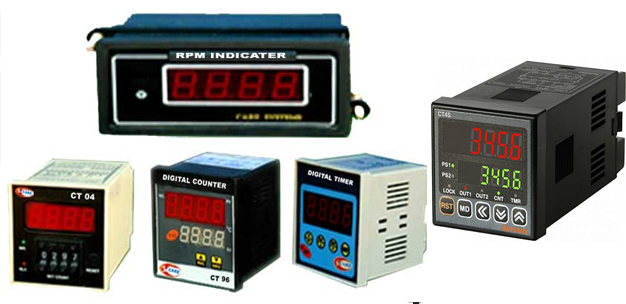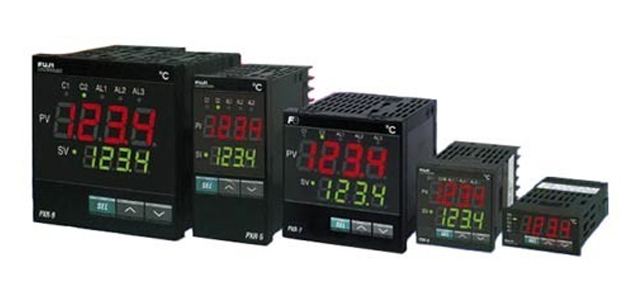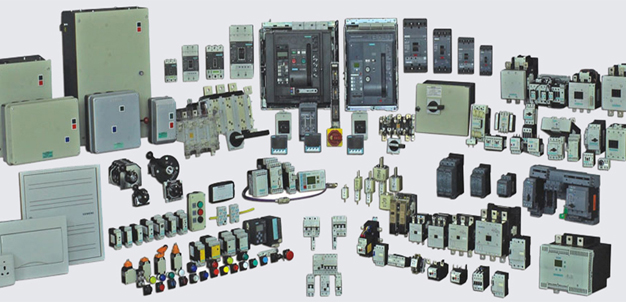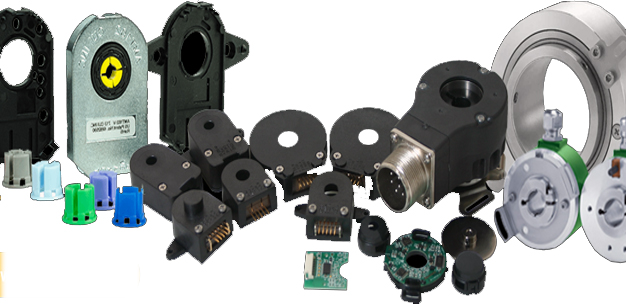Encoder supplier in UAE
Encoder supplier in Abu Dhabi
Encoder supplier in Dubai Sharjah
Encoder supplier in Ajman
Encoder supplier in Umm Al Quwain
Encoder supplier in Ras Al Khaimah
Encoder supplier in Fujairah
Encoder supplier in Africa
Encoder supplier in Middle East
Encoder supplier in Iran
Encoder supplier in Saudi Arabia
Encoder supplier in Yemen
Encoder supplier in Israel
Encoder supplier in Lebanon,
Encoder supplier in Iraq,
Encoder supplier in Jordan,
Encoder supplier in Syria
Encoder supplier in Kuwait
Encoder supplier in Bahrain
Encoder supplier in Egypt
Encoder supplier in Qatar
Encoder supplier in Oman
Encoder supplier in Turkey
Encoder supplier in Cyprus
Encoder supplier in Palestine
Encoder supplier in Sharjah
Encoder dealer in UAE
Encoder dealer in Abu Dhabi
Encoder dealer in Dubai
Encoder dealer in Sharjah
Encoder dealer in Ajman
Encoder dealer in Umm Al Quwain
Encoder dealer in Ras Al Khaimah
Encoder dealer in Fujairah
Encoder dealer in Africa
Encoder dealer in Middle East,
Encoder dealer in Iran
Encoder dealer in Saudi Arabia
Encoder dealer in Yemen
Encoder dealer in Israel
Encoder dealer in Lebanon
Encoder dealer in Iraq
Encoder dealer in Jordan
Encoder dealer in Syria
Encoder dealer in Kuwait,
Encoder dealer in Bahrain
Encoder dealer in Egypt
Encoder dealer in Qatar
Encoder dealer in Oman,
Encoder dealer in Turkey,
Encoder dealer in Cyprus,
Encoder dealer in Palestine
is a device or algorithm that converts information from one format or code to another, typically for standardization, speed, secrecy, or compression. There are various types of encoders used in different industries, each serving a specific purpose. Here are some common uses of encoders:
1. Motion Control and Robotics:
Rotary Used to monitor the position, velocity, and acceleration of rotating shafts in machinery. This is common in robotics, CNC machines, and motors for precise control.
Linear Encoders: Used to measure the movement along a straight path. These are employed in automation systems, robotics, and other industrial applications for accurate positioning.
2. Communication Systems:
: Convert data into a specific code or format for transmission, ensuring that it can be efficiently sent over a network or communication system. For example, used in telecommunications to encode audio or video signals for transmission.
3. Multimedia Compression:
Audio and Video : Used to compress media files into standardized formats such as MP3 for audio or MP4 for video. This reduces file size for storage or transmission over the internet while maintaining quality.
Examples include video streaming platforms like YouTube, where encoders compress video files for efficient distribution.
4. Sensors and Feedback Systems:
Optical In sensors and feedback loops, encoders help track the position or movement of components. This is crucial in automated manufacturing lines for quality control and system monitoring.
5. Automation and Industrial Applications:
are heavily used in industrial automation for tasks like controlling conveyor belts, robotic arms, and other machinery. They provide feedback that helps maintain precision and efficiency in the movement and operation of these systems.
6. Consumer Electronics:
Digital Used in devices like volume knobs on radios or input dials on microwaves, where they translate user inputs into digital signals to control functions.
7. Barcode Scanning and Identification Systems:
Barcoding : are used in barcoding systems to convert information into barcode format, facilitating automated identification and tracking in industries like retail, logistics, and healthcare.
play a vital role in ensuring precision, efficiency, and accuracy across various sectors, from industrial machinery to consumer electronics.
Pulse Control is recognized as a significant supplier of Delta Electronics products, which are widely used in industrial automation and control systems. Here’s an overview of their role as a supplier of Delta products:
1. Product Range
Delta PLCs (Programmable Logic Controllers): Pulse Control supplies various Delta PLC models, including:
DVP series (DVP-SS2, DVP-SV, DVP-ES3, etc.)
AH500 series
AS series
Variable Frequency Drives (VFDs): Offering Delta's range of VFDs, such as the VFD-L and VFD-EL series, for motor speed control and energy savings.
Human-Machine Interfaces (HMIs): Supplying Delta's HMIs that provide intuitive control and monitoring capabilities for various applications.
Power Supplies and Motion Control: Offering Delta's power supplies and motion control products, including servo drives and motors.
2. Integration Services
System Integration: Pulse Control provides integration services for Delta products, helping clients seamlessly incorporate these technologies into their existing systems.
Custom Solutions: They can design and implement customized automation solutions using Delta products tailored to specific customer needs.
3. Technical Support
Expertise and Support: Pulse Control offers technical support for Delta products, assisting customers with product selection, installation, and troubleshooting.
Training Programs: They provide training to customers on the use of Delta products, ensuring effective operation and maximizing system performance.
4. Quality and Reliability
Delta's Reputation: As a supplier of Delta products, Pulse Control benefits from Delta's reputation for high-quality, reliable automation solutions, which enhances customer trust.
Compliance with Standards: All products supplied by Pulse Control are compliant with international safety and quality standards.
5. Market Focus
Industries Served: Pulse Control supplies Delta products to a wide range of industries, including manufacturing, oil and gas, food and beverage, and more, addressing various automation needs.
Conclusion
Pulse Control plays a vital role as a supplier of Delta products, providing businesses with access to high-quality automation solutions and technical expertise. Their commitment to customer satisfaction and system integration makes them a valuable partner for companies looking to enhance their operational efficiency through Delta technologies. If you need more specific information about certain Delta products or applications, feel free to ask!
Pulse Control is recognized as a key supplier in the field of industrial automation, providing a wide range of products and solutions to enhance operational efficiency and productivity. Here’s an overview of what Pulse Control offers as a supplier:
1. Product Offerings
PLC Systems: Pulse Control supplies various programmable logic controllers (PLCs) from leading brands, enabling automation of industrial processes.
HMI Solutions: Human-Machine Interface (HMI) systems for user-friendly control and monitoring of machinery.
Drives and Motors: Supply of AC and DC drives, servo motors, and stepper motors to drive automation systems effectively.
Sensors and : Providing a range of sensors, including proximity sensors, photoelectric sensors, and encoders for precise measurement and control.
Industrial Networking: Solutions for communication protocols and networking to ensure seamless data transfer between devices.
2. Customized Solutions
Tailored Systems: Pulse Control can design and implement customized automation solutions that cater to specific industry needs and operational challenges.
Integration Services: Assisting clients in integrating new automation technologies with existing systems to improve efficiency and reduce downtime.
3. Technical Support and Training
Expert Guidance: Providing technical support to clients in selecting the right products and solutions for their automation needs.
Training Programs: Offering training sessions for personnel to familiarize them with new systems and technologies, ensuring effective use of the equipment.
4. Quality Assurance
High Standards: Committed to supplying products that meet international quality and safety standards, ensuring reliability in various industrial applications.
5. Partnerships with Leading Brands
Diverse Portfolio: Pulse Control collaborates with renowned manufacturers in the automation industry, allowing them to offer a comprehensive portfolio of high-quality products.
6. Market Focus
Industries Served: Pulse Control caters to various industries, including manufacturing, food and beverage, pharmaceuticals, oil and gas, and many others, providing solutions that enhance operational efficiency and productivity.
Conclusion
As a supplier, Pulse Control stands out for its commitment to quality, customer service,
and the provision of innovative automation solutions. By focusing on a wide range of products and offering customized services, they effectively support businesses in their automation and industrial needs.cal signal. It is commonly used in industrial automation and control systems to provide feedback on the position, speed, or direction of motors. Encoders can be classified into two main types:
These provide relative position data and generate pulses as the shaft rotates. The number of pulses determines the movement's distance or speed.
:provide a unique position value for each shaft angle. They retain their position information even when power is lost, making them suitable for applications where precise positioning is critical.
Key Features of Encoders from Pulse Control:
High Precision: Pulse Control’s are designed to deliver high accuracy and reliability, ensuring precise feedback for various applications.
Versatile Applications: These encoders are suitable for a wide range of applications, including robotics, CNC machines, conveyor systems, and industrial automation.
Durability: Pulse Control encoders are built to withstand harsh industrial environments, with features like IP ratings for dust and water resistance.
Compatibility: They can be easily integrated with various control systems and PLCs, making them flexible solutions for different automation needs.
Custom Solutions: Pulse Control can offer customized encoder solutions tailored to specific customer requirements, enhancing their utility across various sectors.
Benefits of Using
Enhanced Control: provide real-time feedback, allowing for better control of motors and machinery.
Improved Efficiency: Accurate positioning and speed monitoring lead to increased operational efficiency.
Reliability: Encoders contribute to the reliability of automated systems, minimizing downtime and maintenance needs.
Conclusion:
Pulse Control’s encoders are essential components for businesses looking to improve automation and control in their operations. With their focus on quality, precision, and customer service, Pulse Control stands out as a reliable supplier in the field of industrial automation.
Pulse Control refers to a company that serves as a supplier of various industrial automation products and systems. It provides components and solutions for industrial control, automation, and energy management. The company specializes in distributing products such as programmable logic controllers (PLCs), drives, sensors, and other control devices that are essential for modern manufacturing and processing industries.
Key Functions and Offerings of Pulse Control:
Industrial Automation Products: Pulse Control provides a wide range of industrial automation components, including:
Programmable Logic Controllers (PLCs): These are digital computers used for the automation of industrial processes, such as controlling machinery, assembly lines, and robotic devices.
Variable Frequency Drives (VFDs): These are used to control the speed and torque of electric motors by adjusting the frequency and voltage supplied to the motor.
Supplier of Major Brands: Pulse Control collaborates with several leading manufacturers in the automation industry, offering their products to clients. For example:
Delta: Pulse Control supplies Delta’s PLCs, drives, and other control systems, especially in regions like the UAE and GCC countries.
Multispan: The company supplies products from Multispan, which include industrial process controllers and meters.
Nidec: Known for motors and drive systems, Pulse Control is a key supplier of Nidec products.
Application of Products: The products provided by Pulse Control are used in various industries, such as manufacturing, energy management, HVAC (heating, ventilation, and air conditioning), and more. They are essential for:
Process Automation: Automating production lines, ensuring precision and efficiency in industries like automotive, food processing, and electronics.
Energy Saving: By controlling motor speed and optimizing energy usage, Pulse Control’s products help companies reduce energy consumption and improve efficiency.
Motion Control: Their products are used for controlling movement in machinery, such as controlling the rotation speed of motors or the position of mechanical components.
Regional Importance: In the UAE and other Gulf Cooperation Council (GCC) countries, Pulse Control plays a significant role as a distributor of industrial automation equipment. They provide technical support, installation, and after-sales service, ensuring that industries in the region have access to high-quality automation solutions.
Example Products Distributed by Pulse Control:
Delta DVP Series PLCs: Used for automation control, available in various models like DVP-SX, DVP-SV, and DVP-SS2.
Delta AC Drives: Such as the Delta AC 10 Series and ACS580, these drives regulate motor speed and improve system efficiency.
Multispan Controllers: Provide process control solutions, including temperature and humidity control systems.
Role in the Automation Ecosystem:
Pulse Control acts as a critical link between manufacturers of industrial equipment and the industries that utilize them. By supplying a broad range of products from various brands, Pulse Control helps companies in different sectors enhance their automation capabilities, leading to greater operational efficiency, reduced downtime, and improved production quality.
In summary, Pulse Control is a key supplier of automation and control equipment, serving industries by providing advanced technology solutions to streamline production, improve energy efficiency, and enable more sophisticated control over industrial processes.
system includes manufacturers, system integrators, software providers, and service companies, all working towards streamlining operations through automation.
Pulse Control’s Role in the Automation Ecosystem:
1. Distributor of Industrial Automation Products:
Pulse Control serves as a bridge between manufacturers and end-users by distributing high-quality industrial automation products from leading brands
like Delta, Multispan, Nidec, and others. By offering a range of automation components such as PLCs, drives, sensors, and controllers, Pulse Control ensures that industries have access to the latest technology to optimize their production systems.
PLC Distribution: Pulse Control supplies Programmable Logic Controllers (PLCs), which are the "brains" behind automated systems, allowing companies to automate repetitive tasks and control machinery with precision.
Drives and Motion Control: Variable Frequency Drives (VFDs) are used to regulate the speed of motors, contributing to energy savings and improved process control.
2. Support and Integration:
Pulse Control not only supplies products but also assists with the integration of automation systems. This means helping industries incorporate the hardware and software needed to automate processes, ensuring seamless communication between machines and central control systems.
Customization: They help customers tailor automation solutions to their specific needs, ensuring that the components supplied can handle the particular demands of their industry.
Technical Expertise: Pulse Control offers technical support, helping industries troubleshoot issues, install equipment, and train personnel on using new systems.
3. Facilitator of Industry 4.0:
Industry 4.0, also known as the fourth industrial revolution, is characterized by the integration of smart technologies, IoT (Internet of Things), AI, and data analytics into industrial processes. Pulse Control contributes to this transformation by supplying automation products that enable real-time data collection, remote monitoring, and predictive maintenance.
Smart Devices: Pulse Control offers advanced automation devices that can connect to cloud platforms, enabling manufacturers to monitor operations from anywhere, reduce downtime, and make data-driven decisions.
4. Enabler of Energy Efficiency:
A significant part of the automation ecosystem is focused on reducing energy consumption. Pulse Control plays a vital role by supplying products like VFDs that regulate motor speeds, reducing the power consumed by industrial motors.
Energy Management Solutions: Products like Delta’s AC drives provided by Pulse Control help industries optimize energy usage, making systems more efficient and lowering operational costs.
5. Regional Impact in the UAE and GCC:
In regions like the UAE and GCC countries, Pulse Control is a crucial player in supporting industries such as oil and gas, manufacturing, construction, and infrastructure development. The company ensures that these sectors have access to advanced automation tools that improve productivity and maintain competitive edges in global markets.
Local Presence and Service: By offering local service, technical support, and distribution in these regions, Pulse Control strengthens the automation ecosystem by ensuring timely product availability, after-sales service, and continuous support.
6. Enhancing Production Efficiency and Safety:
Pulse Control’s products help industries automate manual and hazardous tasks, improving both the efficiency and safety of production lines.
Robotic Control: By supplying motion control systems and PLCs, Pulse Control helps industries implement robots and automated systems that can work in harsh environments, reducing human intervention and improving safety.
7. Partnering with Manufacturers:
Pulse Control collaborates with manufacturers of automation technology, acting as a key channel for distributing their products in specific regions. This partnership is essential for expanding the reach of automation technologies and making cutting-edge tools available to a broader range of industries.
Summary:
Pulse Control’s role in the automation ecosystem is multifaceted. As a distributor, support provider, and technical expert, the company ensures that industries
have access to the best automation technologies available, enabling more efficient production, energy savings, enhanced safety, and participation in the next wave of industrial innovation through Industry 4.0 technologies. Their contribution is essential for improving the overall performance and competitiveness of industries in the regions they serve.
The Automation Ecosystem refers to the integrated network of technologies, components, processes, and players involved in automating industrial, manufacturing, and business operations. It encompasses the entire framework where machines, systems, software, and humans
interact to enhance productivity, efficiency, and safety. This ecosystem is designed to reduce human intervention in repetitive or hazardous tasks while improving precision and consistency in processes. Here’s a breakdown of the main elements and their roles within the automation ecosystem:
Key Components of the Automation Ecosystem:
1. Hardware (Physical Components)
Programmable Logic Controllers (PLCs): These are digital computers used to control machinery and processes in industrial settings. They are the “brain” of the automation system, receiving inputs from sensors and controlling outputs to motors, actuators, etc.
Sensors and Actuators: Sensors gather data (e.g., temperature, pressure, motion) and send it to the control system, while actuators execute commands from the system to adjust machine operations (e.g., moving parts, adjusting flow).
Variable Frequency Drives (VFDs): These regulate the speed and torque of electric motors, enhancing energy efficiency and providing precise control over machinery.
Robotics: Robots, especially in manufacturing, play a key role in automation by performing repetitive, dangerous, or precise tasks such as welding, packaging, or assembly.
Human-Machine Interfaces (HMIs): These interfaces allow human operators to monitor and control automated systems, often through touchscreens or computer systems.
2. Software and Control Systems
Supervisory Control and Data Acquisition (SCADA): SCADA systems are used for monitoring and controlling large industrial processes, often in utilities, transportation, and manufacturing sectors. They gather data in real-time and provide centralized control.
Distributed Control Systems (DCS): DCSs control manufacturing processes by distributing control functions across different areas of a plant, enabling more localized control.
Manufacturing Execution Systems (MES): These systems manage and track production in real-time, ensuring coordination between different parts of a production line.
Enterprise Resource Planning (ERP) Software: ERP systems manage and integrate core business processes, including production planning, purchasing, inventory, and sales, ensuring that automation aligns with broader business goals.
3. Connectivity (Networking)
Industrial Internet of Things (IIoT): IIoT refers to the interconnected network of devices and machines that communicate with each other and with central control systems. This enables real-time data exchange and monitoring, allowing for predictive maintenance, remote monitoring, and better decision-making.
Cloud Computing: Cloud platforms store and analyze vast amounts of data collected from automation systems, providing insights that can optimize processes and reduce downtime.
4. Artificial Intelligence (AI) and Machine Learning (ML)
Predictive Maintenance: AI-driven systems can analyze data from sensors to predict when equipment will fail, allowing for maintenance before breakdowns occur, minimizing downtime.
Optimization Algorithms: AI can optimize production schedules, material usage, and energy consumption, reducing waste and improving efficiency.
5. Human Workforce (Operators and Engineers)
System Integrators: These are professionals or companies that design, install, and maintain automation systems, ensuring that hardware and software components work together seamlessly.
Operators and Technicians: While automation reduces manual labor, human operators are still needed to oversee systems, troubleshoot issues, and maintain equipment.
Data Analysts: As data becomes an integral part of automation, analysts are needed to interpret trends and suggest improvements to processes based on data insights.
How the Automation Ecosystem Works:
In an automated environment, these components work together to streamline operations. For example, in a manufacturing plant:
Sensors detect changes in the environment, such as temperature or pressure, and send the data to the PLC.
The PLC processes this data and sends commands to actuators to adjust machinery operations.
SCADA or DCS systems allow centralized control and monitoring, providing operators with real-time feedback and allowing adjustments as needed.
The entire system is interconnected through the IIoT, enabling real-time data transfer between machines, allowing for adaptive adjustments and predictive maintenance.
Key Players in the Automation Ecosystem:
1. Manufacturers:
Companies that produce automation equipment, including PLCs, sensors, actuators, and robots. Examples include Siemens, Delta, Schneider Electric, Rockwell Automation, and ABB.
2. Distributors and Suppliers:
Distributors like Pulse Control supply automation products to industries, acting as a bridge between manufacturers and end-users. They provide essential hardware, software, and support services to keep automated systems running.
3. System Integrators:
These firms design and implement automation solutions by combining various components like PLCs, sensors, and software into a cohesive system. They ensure the technology fits the specific needs of the industry, such as optimizing production lines in manufacturing or automating processes in oil and gas operations.
4. End-User Industries:
Sectors such as manufacturing, automotive, pharmaceuticals, energy, and utilities are major consumers of automation technologies. They use these solutions to improve efficiency, ensure safety, and reduce operational costs.
5. Regulatory Bodies:
Organizations that set standards for safety, data privacy, and operational guidelines in automated environments, ensuring that industries comply with legal and environmental regulations.
Benefits of the Automation Ecosystem:
Increased Productivity: Automated systems operate continuously, increasing production rates and ensuring consistent quality.
Reduced Costs: Automation minimizes human error, reduces labor costs, and improves rith existing systems can be






